Black Girl Drawing With Copic Markers
Copic Markers appeared on my radar almost two years ago and I haven't looked back since. It was around the time I started my Instagram page, and my followers could see how the collection of five markers was growing slowly and how much could be achieved with just a few pens. For my ink drawings, I often limit my usage of markers; a few colours can create refreshing works, while using too many can have the opposite effect.
I'm proud and happy to be able to inspire over 600,000 followers with my daily drawings. Working in the office and studying during the day, I know how hard it is to find the energy and motivation to draw after work or school, but I try to tell everyone to never give up their passions. I started out by spending a few minutes every evening on sketching, but the joy that finished image brings me is so strong that these days I can spend the whole night drawing without noticing!
Each colour is featured in no more than three elements. This adds rhythm and harmony to the painting.
Asia Ladowska
For this workshop I challenged myself to come up with a simple character design, mostly to focus on and demonstrate how I use Copic Markers (see this Black Friday Copic marker post if you need your own markers), but don't be deceived! The character and the pose may be simple, but I equipped this girl with accessories and details that add to her personality. At the first glance she may look innocent and harmless, but then you notice a faint smile and one lifted eyebrow complemented by a little patch on her jaw, a sabre cat skull design on her top and claw-like earrings. Then you realise that she's up to no good. Blue colours calm the painting and pink glasses add to a dreamlike atmosphere.
The palette is limited to three main colours: blue, black and pink. If you look closely, they not only work well together, but they're also composed in harmony wherever I've added them to the paper.
Each colour is featured in no more than three elements: blue (hair, blouse and rose); pink (glasses, sleeves and material at the bottom of the page); black (her top and the two ribbons tying her twin ponytails). This adds rhythm and harmony to the painting.
In addition to the step-by-step breakdown, my video for this workshop (above) also reveals some tips on how I achieve my smooth marker blends. Be sure to check it out!
01. Experiment with sketches
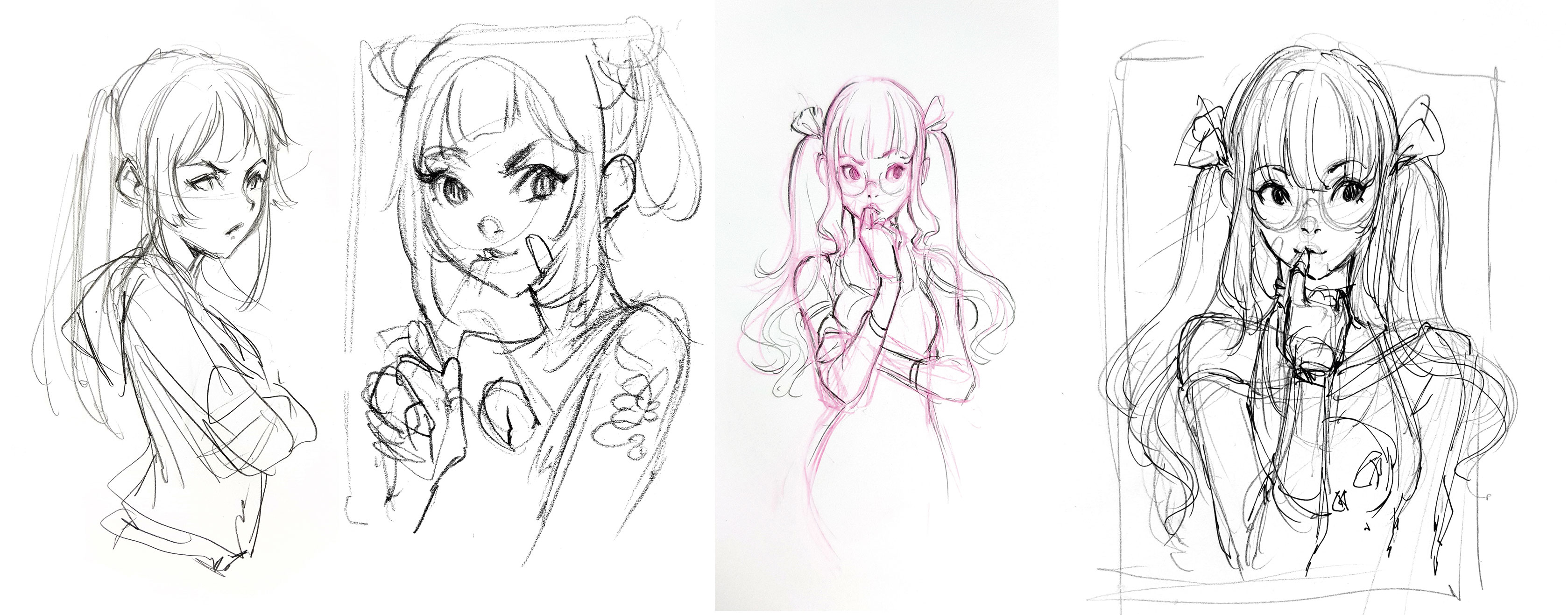
It's okay to spend time developing ideas – sketching them out for a while before developing a final drawing. On a good day, it can take five minutes to draw what I want, when hours of labour won't bring the same fresh and satisfying result. Take your time and keep sketches loose.
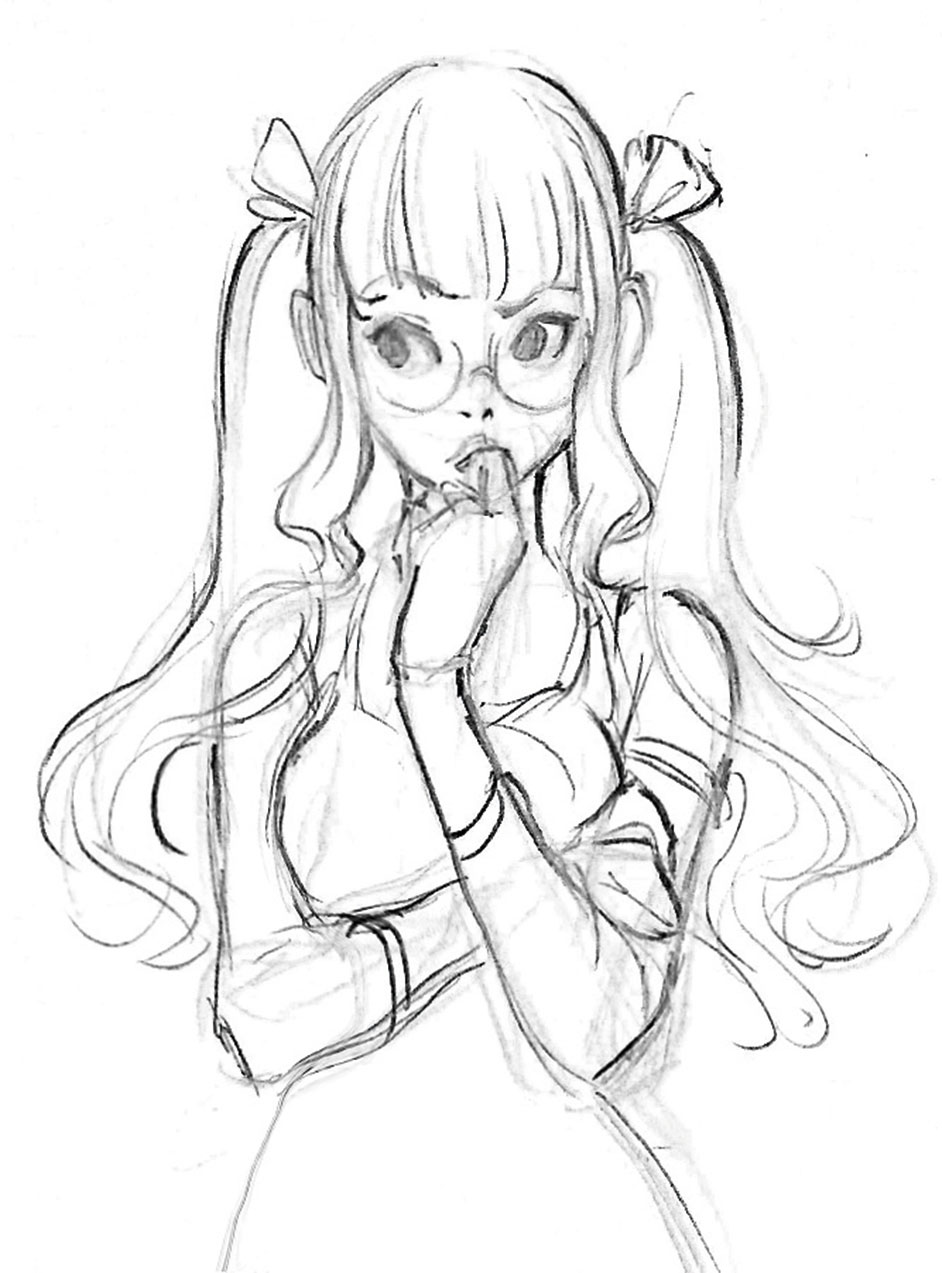
Hello Photoshop! At this stage I'd usually choose my favourite messy sketch, scan and open it in Photoshop CC. Here, I change the image to black and white and make use of the Liquify tool. Flipping it horizontally reveals some mistakes in the drawing.
03. Size matters!
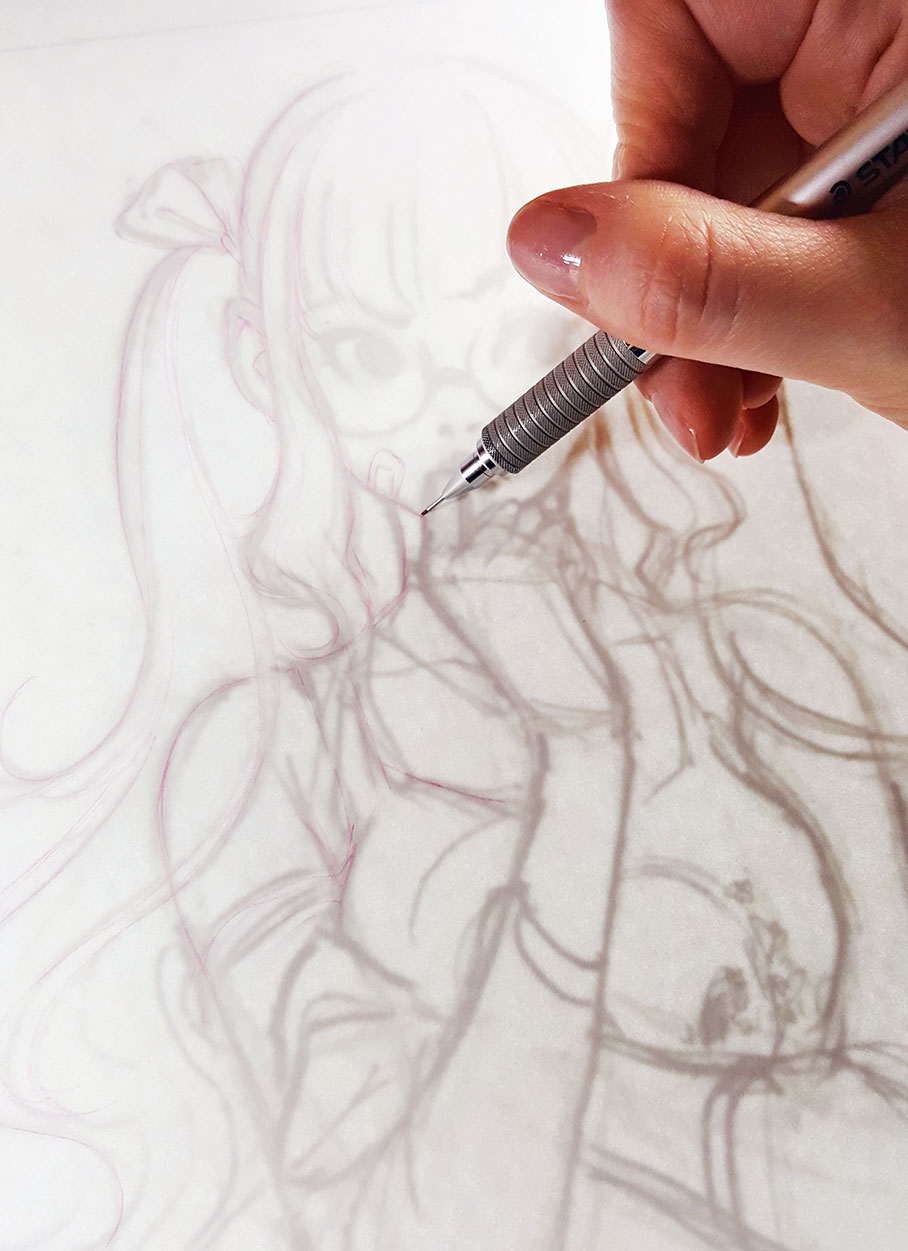
My sketches are tiny because it's easier to control the character's proportions. It also stops me from adding a lot of details at the beginning of the process. I scale the design to A4 size and print out to then transfer to a smooth watercolour paper using a light box.
04. Create first layer of ink
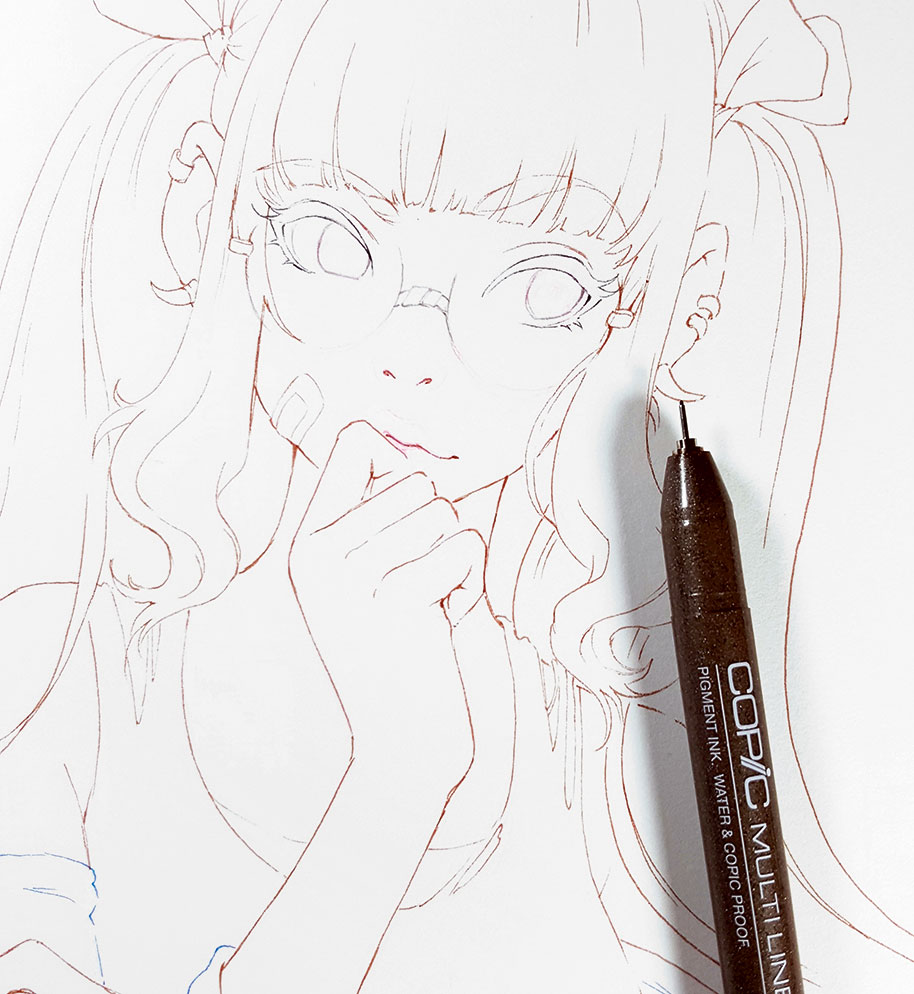
Before inking, I make some tweaks and add details with pencil, and then put down a thin line mostly with the Sepia Copic Multiliner. Sepia is a safe choice because almost all other colours can cover it in the second stage of inking. Note that ink fades when used with markers, so there's no need to overwork the line art at this stage.
05. Build colour
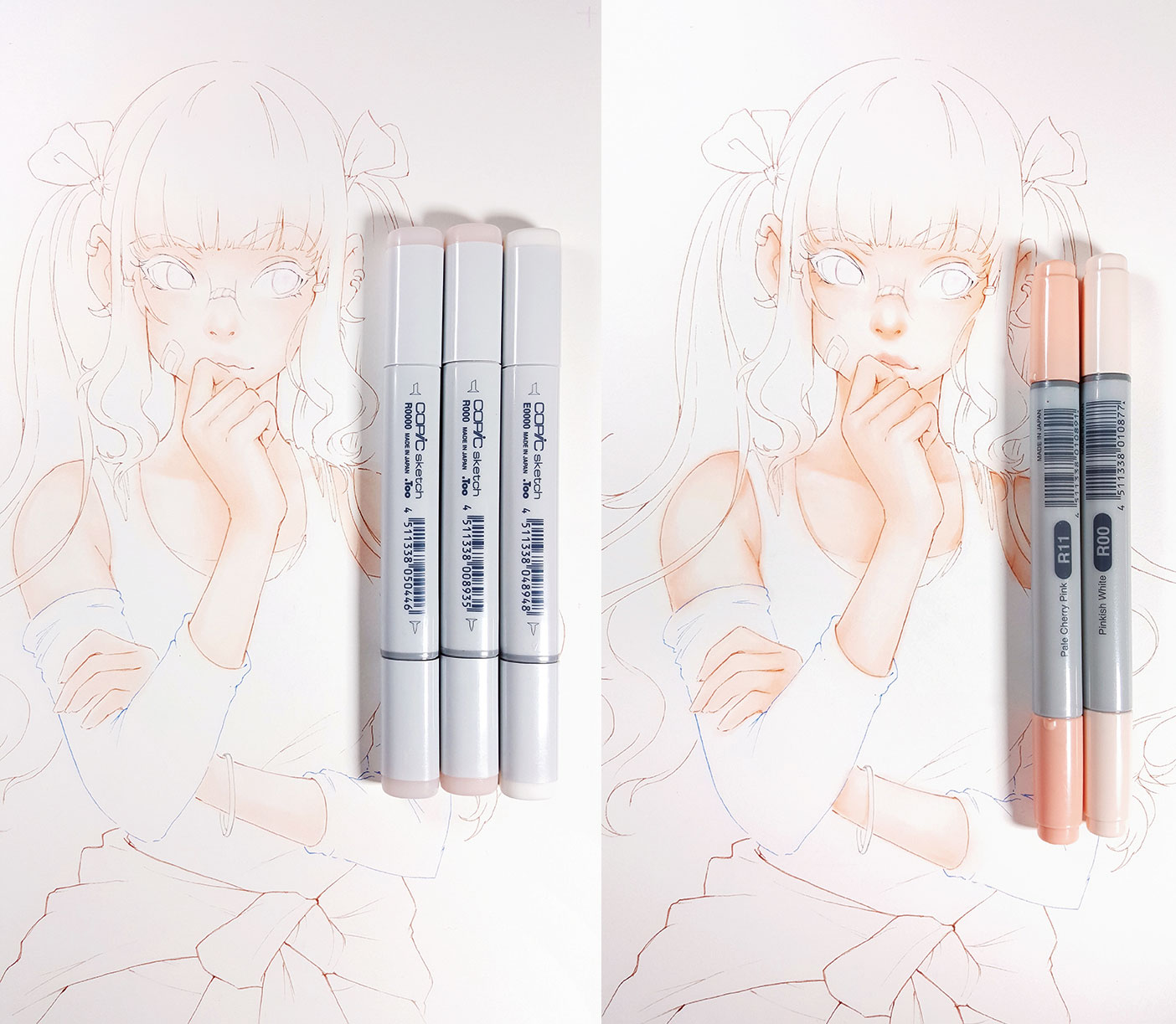
Alcohol markers tend to pick up ink that's already on the paper, so it's best to start from the lightest parts of the composition and build up darker colours gradually. The tip will always find a chance to pick up dark ink and create smudges. Bearing this in mind, I start colouring the skin first.
06. Decide on the colour palette
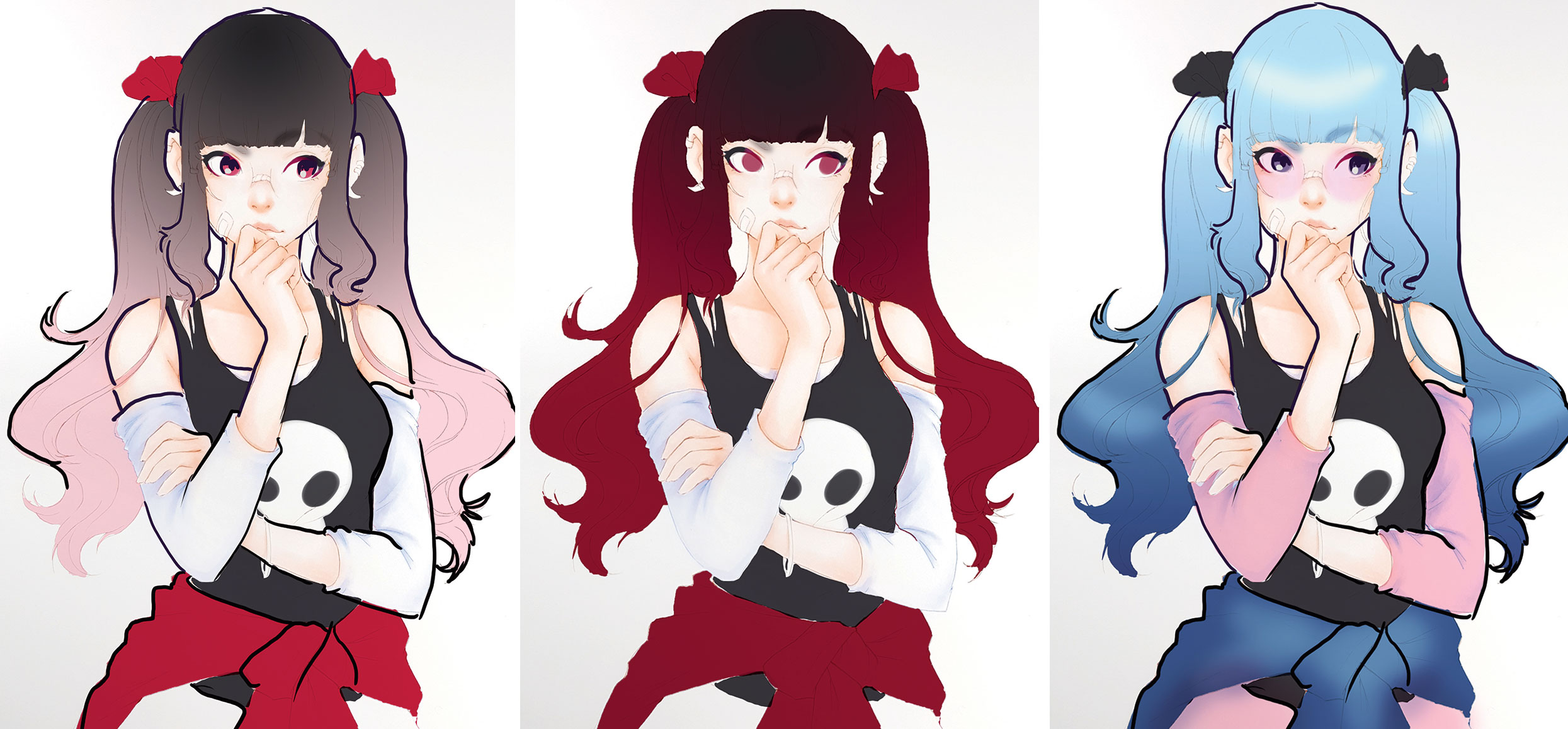
Photoshop comes in handy again! Digital software makes it easy for me to try out a range of possibilities and colour combinations, to the degree where I almost decide to use the colours I don't have as markers! When I'm working out a colour palette, I try digital colouring first or draw little five-minute thumbnails on paper and colour them in traditionally. In the end I settle on the blue–pink–black palette.
07. Colour the character's hair
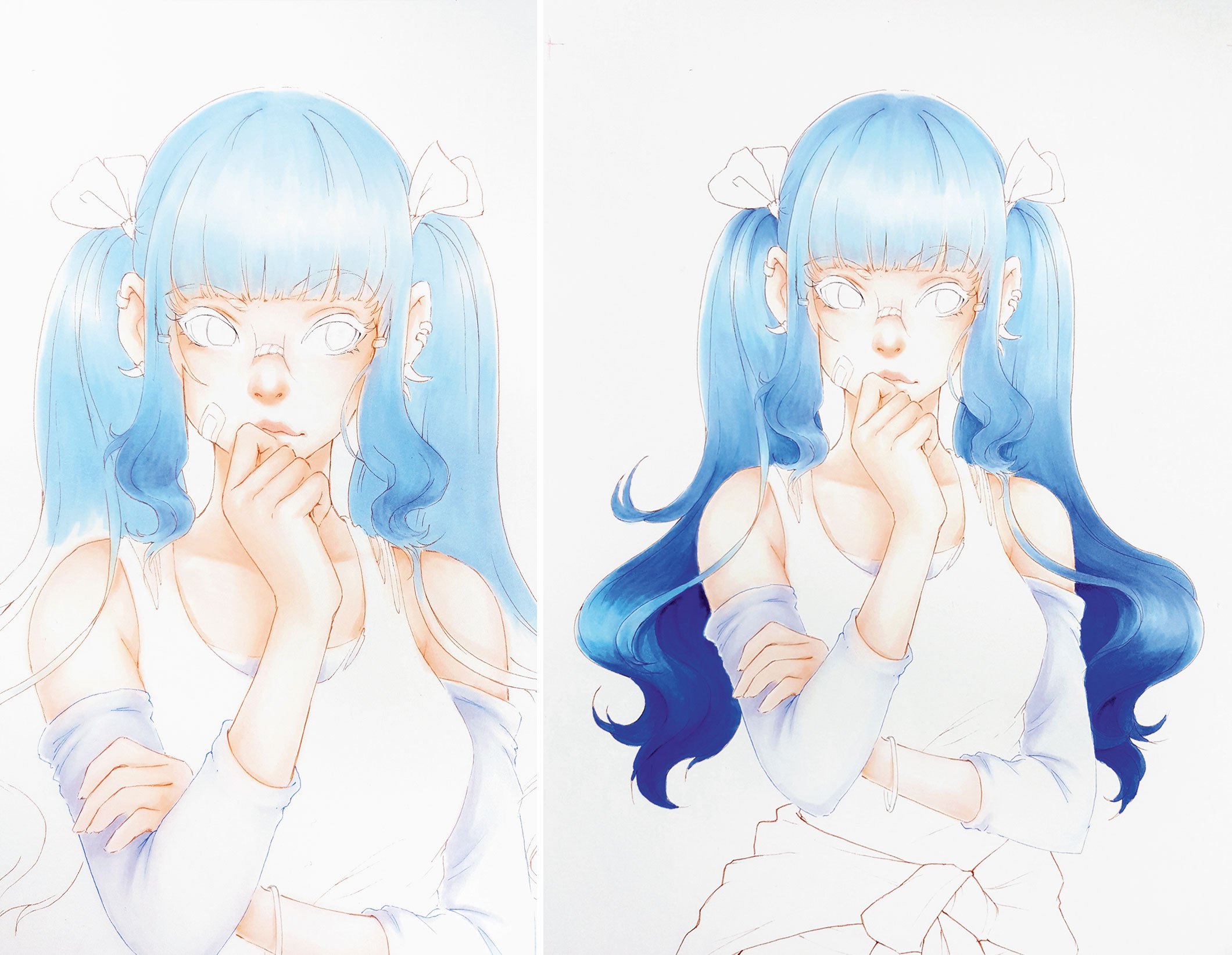
I love using vibrant gradient colours to paint hair! Copic markers can blend seamlessly and to achieve this I regularly switch between markers, using a lighter colour to create smooth blends. It takes some patience, but it's worth it. I would recommend blending your markers while the ink is still wet.
08. Use the magic of Copic blending
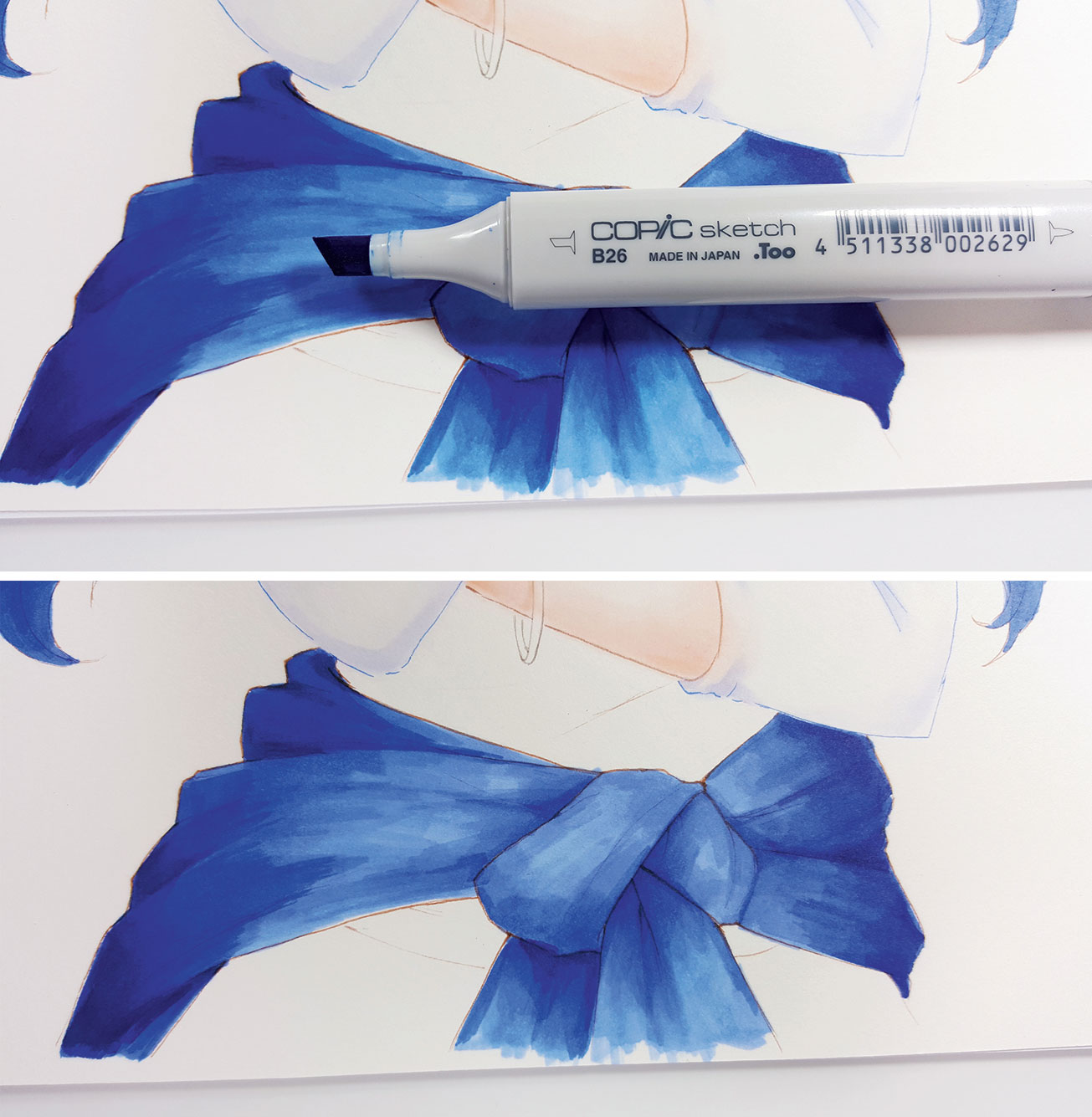
I'm using the same colours for both the hair and the blouse tied around her waist. I use the side with a brush nib for her hair, which enables me to blend softly. For the blouse I use the broad nib of the markers to create a realistic material look. Using markers with different tips makes it possible to create a range of textures.
09. Design accessories
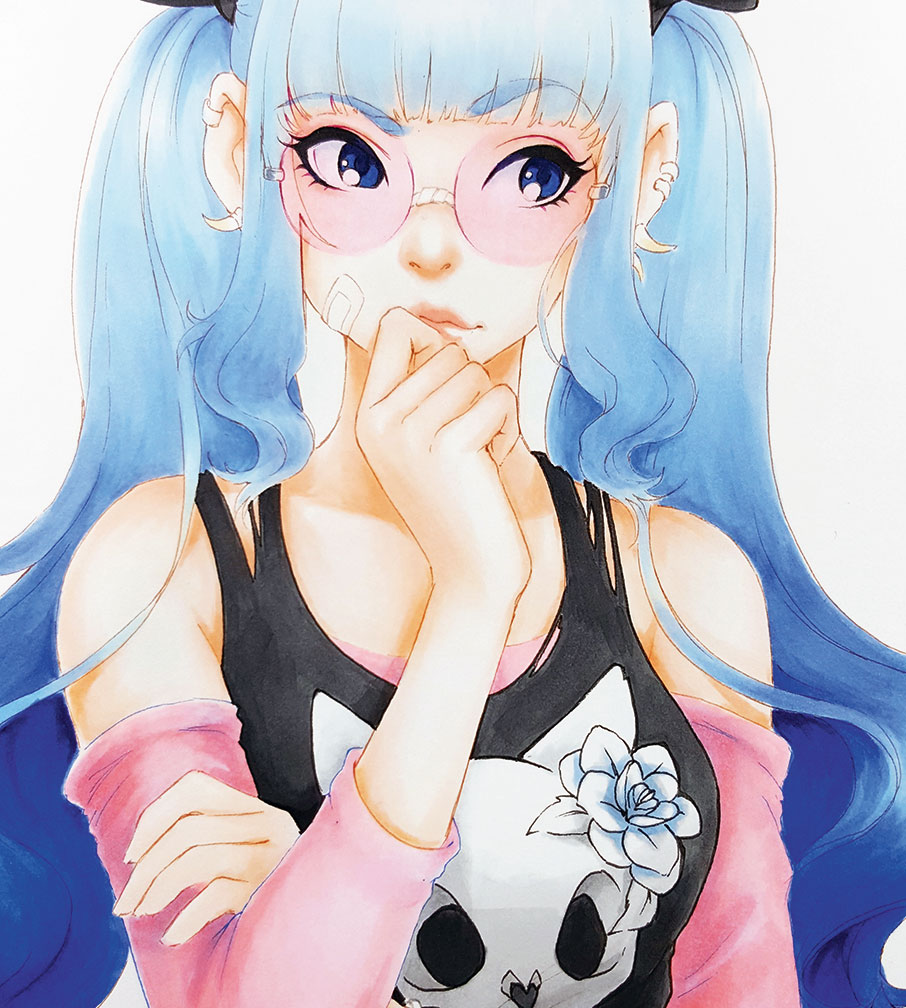
This is the fun part of the process. Her top shows a cute sabre-toothed cat's skull with cat ears. Adding a flower makes the cat look cute and complements my colour composition, which was missing a blue accent. Her glasses, earrings, patch on her jaw and bows all come together to create a dangerously sweet character!
10. Add second layer of ink
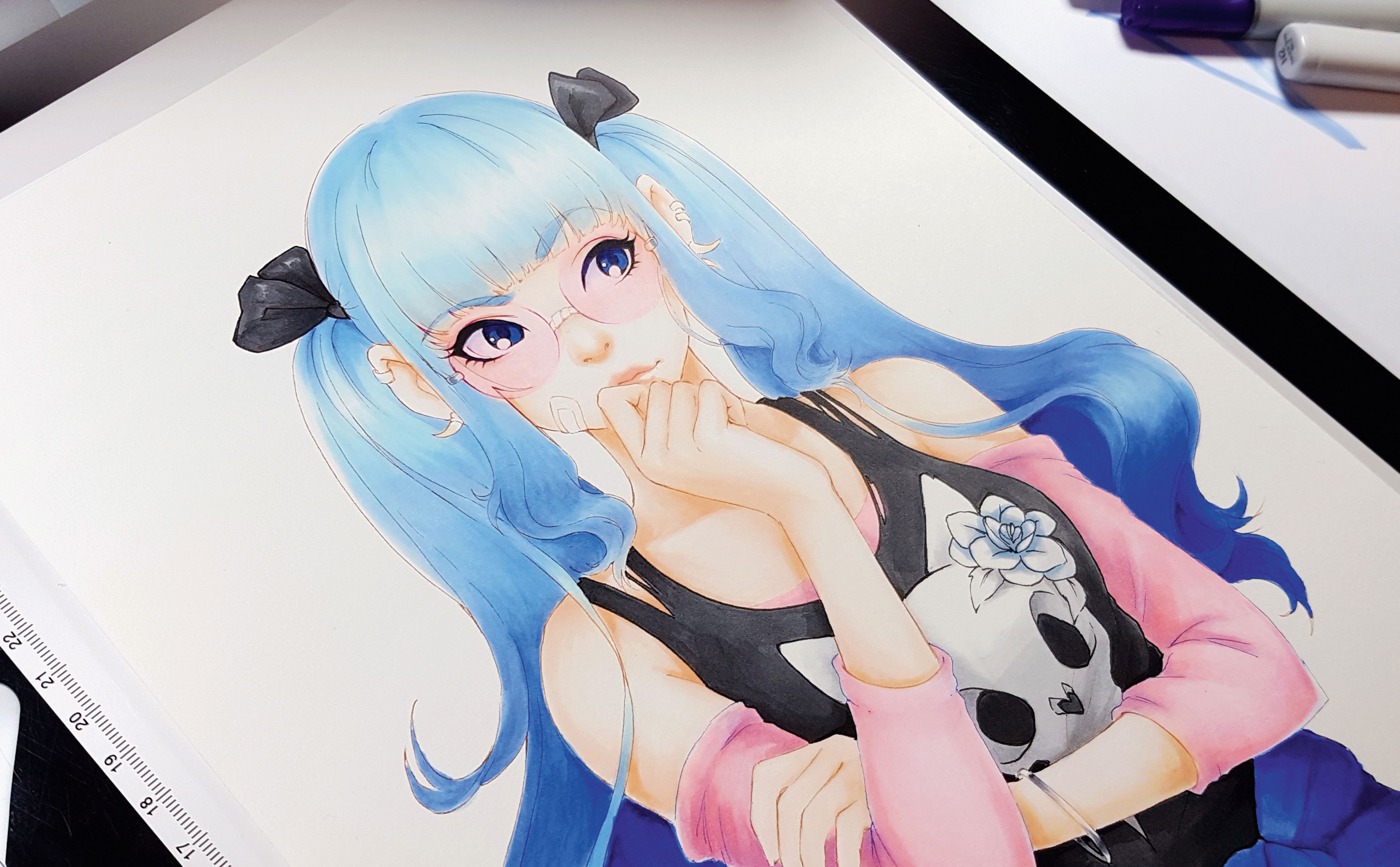
Now I apply a second layer of line work, using various colours of multiliners. Varying the line thickness keeps things interesting. The first layer has already faded with the amount of alcohol and ink involved. Time to bring it back!
11. Add final touches
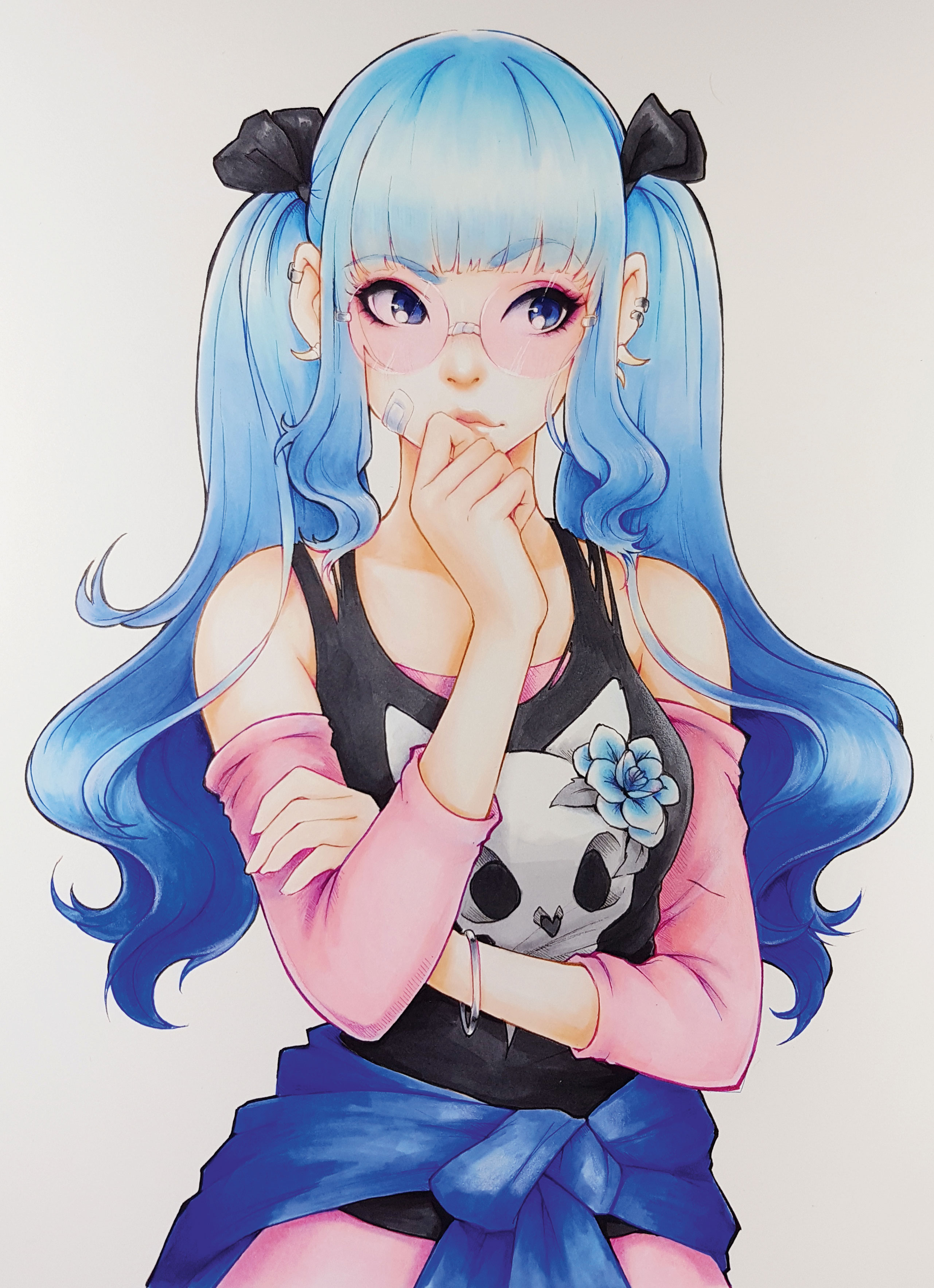
I use coloured pencils to make barely noticeable changes to the drawing, such as deepening the shadows and adding a blush to the character's cheeks. Coloured pencils complement markers well and can cover small imperfections and uneven blending.
This article originally appeared in issue 163 of ImagineFX , the world's leading magazine for digital artists. Subscribe here.
Related articles:
- How to draw a character in pen and ink
- 9 top tips for drawing in black and white
- 17 stunning examples of ink drawings
Black Girl Drawing With Copic Markers
Source: https://www.creativebloq.com/features/create-a-character-using-copic-markers
0 Response to "Black Girl Drawing With Copic Markers"
Post a Comment